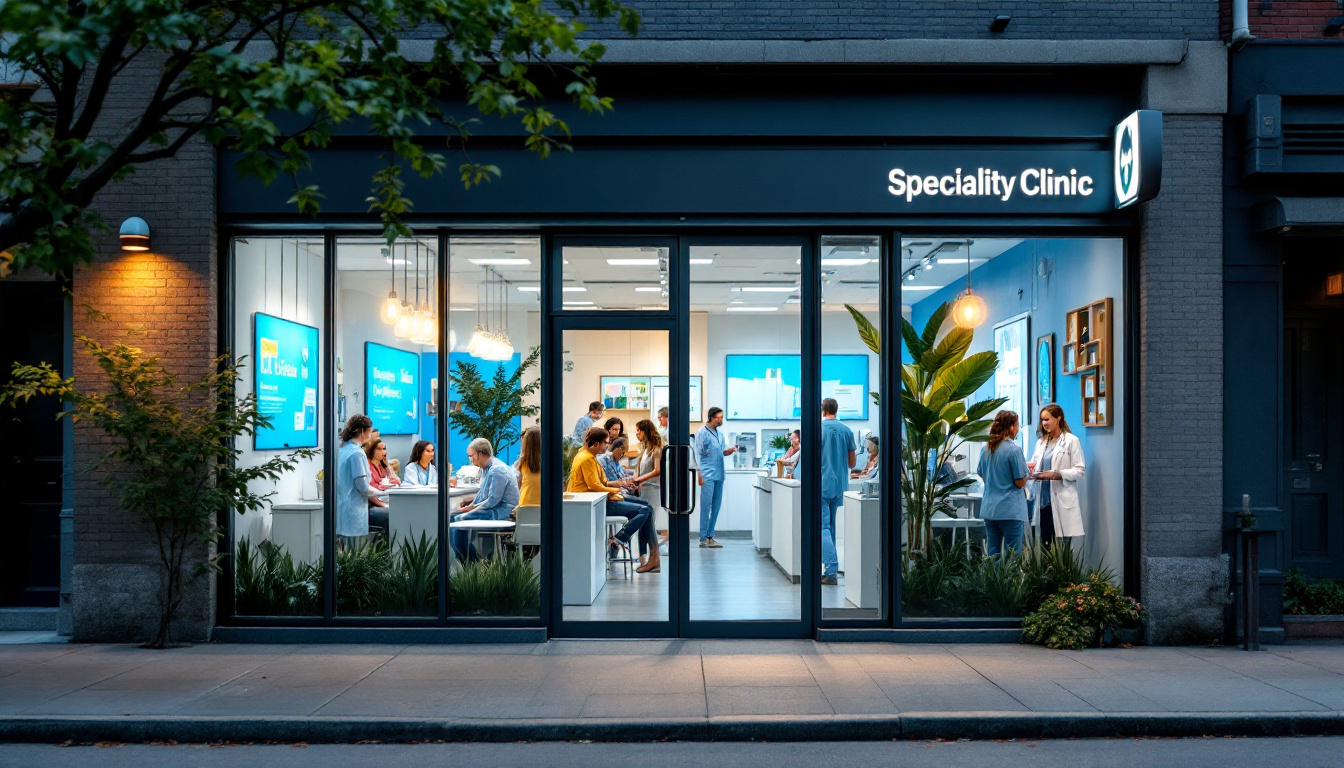The Beginner's Guide to PPC Advertising in Kansas City, MO

PPC advertising, or Pay-Per-Click advertising, has become an essential tactic for businesses looking to increase their online visibility and drive targeted traffic to their websites. Particularly in vibrant markets like Kansas City, MO, leveraging effective PPC strategies can yield significant returns for local businesses. In this guide, we will explore the fundamentals of PPC advertising, its benefits for Kansas City's businesses, and detailed steps for executing successful campaigns.
What is PPC and how does it work?
PPC, or Pay-Per-Click, is an online advertising model where advertisers pay each time a user clicks on one of their ads. This model allows for precise targeting and can yield effective results for businesses of all sizes. Typically, the most common platform for PPC ads is Google Ads, but there are several other platforms like Bing Ads and social media networks that also offer PPC services.
The process starts with businesses creating ads that will appear in search engine results or on social media. Advertisers bid on specific keywords relevant to their products or services. When a user enters those keywords in the search bar, the ads may appear at the top or bottom of the search results, depending on various factors, such as bid amount and quality score.
Once the ads are live, businesses only pay when users click on their ads, hence the name "pay-per-click." This model allows for budget flexibility, as advertisers can allocate a set daily budget to control their spending.
In addition to keyword targeting, PPC campaigns can also leverage demographic targeting, allowing businesses to reach specific audiences based on factors such as age, gender, location, and interests. This level of targeting can significantly enhance the effectiveness of an ad campaign, ensuring that the right message reaches the right people at the right time. Furthermore, advertisers can use remarketing strategies to re-engage users who have previously interacted with their website, reminding them of products or services they showed interest in, thereby increasing the likelihood of conversion.
Moreover, the success of a PPC campaign is often measured through various metrics, including click-through rates (CTR), conversion rates, and return on ad spend (ROAS). By analyzing these metrics, businesses can gain insights into their ad performance and make data-driven decisions to optimize their campaigns. Continuous testing and refinement of ad copy, landing pages, and bidding strategies are essential to maximizing the return on investment and achieving long-term success in the competitive landscape of online advertising.
Why PPC is ideal for businesses in Kansas City, MO
For businesses operating in Kansas City, MO, PPC advertising offers unique advantages that can help them stand out in a competitive marketplace. One of the primary benefits is the ability to target local customers effectively. With location-based targeting options, businesses can ensure that their ads are shown to users in specific geographic areas.

Moreover, Kansas City has a diverse array of industries, from tech startups to established retail outlets. PPC allows these businesses to craft tailored messages that resonate with their unique customer demographics, thereby enhancing engagement and conversion rates.
In addition to local targeting, PPC can cater to specific events and seasons relevant to Kansas City. For example, a restaurant could promote a special menu during the Kansas City Restaurant Week, and a local artist could showcase their shop during First Fridays. By aligning PPC campaigns with local events, businesses can capture the interest of potential customers in real-time.
Furthermore, the competitive landscape of Kansas City means that businesses must continuously innovate to maintain their market position. PPC advertising provides the flexibility to test various ad formats and messaging strategies quickly. A local coffee shop, for instance, might experiment with different promotional offers or highlight unique aspects of their brand, such as sustainability practices or locally sourced ingredients. This iterative approach not only helps in refining marketing strategies but also keeps the brand fresh and relevant in the eyes of consumers.
Additionally, Kansas City is home to a vibrant community of entrepreneurs and small businesses. This environment fosters collaboration and networking opportunities that can be leveraged through PPC campaigns. By partnering with local influencers or participating in community events, businesses can enhance their visibility and credibility. For instance, a local boutique could run a PPC campaign that features a collaboration with a popular Kansas City fashion blogger, thereby tapping into their audience and driving more traffic to their store. Such strategies not only boost online presence but also build lasting relationships within the community.
How to set up a PPC campaign step-by-step
Step 1: Define your goals
The first step in setting up a successful PPC campaign is defining your goals. Are you looking to increase brand awareness, drive traffic to your website, or boost sales? Clear goals will help inform your strategy and enable you to measure success. For instance, if your primary aim is to enhance brand visibility, you might focus on impressions and reach, while a sales-driven campaign would prioritize conversion metrics. Additionally, consider setting SMART goals—Specific, Measurable, Achievable, Relevant, and Time-bound—to ensure your objectives are clear and actionable.

Step 2: Conduct keyword research
Effective PPC campaigns depend heavily on selecting the right keywords. Utilize tools like Google Keyword Planner to identify keywords that are relevant to your business and have a good search volume. Focus on both short-tail and long-tail keywords to reach a broader audience. Long-tail keywords, in particular, often have less competition and can lead to higher conversion rates, as they target users who are further along in the buying process. Don’t forget to analyze competitor keywords as well; understanding what works for others in your industry can provide valuable insights and help you refine your keyword strategy.
Step 3: Set your budget
Determining your budget is crucial to avoid overspending. Decide how much you’re willing to pay per click and set a daily budget that aligns with your overall marketing goals. Remember, PPC can be scaled up or down depending on performance. Additionally, consider allocating a portion of your budget for testing different ad variations or targeting strategies. This experimentation can lead to discovering which ads resonate best with your audience, ultimately maximizing your return on investment. Keep in mind that seasonal trends may also affect your budget; adjusting your spending during peak times can yield better results.
Step 4: Create compelling ad copy
The effectiveness of your ads often hinges on the quality of your ad copy. Make sure to highlight your unique selling propositions and include strong calls to action. Engaging and pertinent ads can significantly boost click-through rates. It’s also beneficial to tailor your ad copy to the specific audience segments you’re targeting. Using language and phrases that resonate with your ideal customers can enhance the relevance of your ads. Furthermore, consider incorporating ad extensions, such as site links or callouts, to provide additional information and increase the visibility of your ads on search engine results pages.
Step 5: Monitor and optimize
Once your ads are live, the work isn’t over. Regularly monitor their performance through metrics like click-through rates (CTR), conversion rates, and overall ROI. Use this data to optimize your campaigns, making adjustments as necessary to keywords, ad copy, and bidding strategies. Additionally, consider implementing A/B testing for different ad variations to determine which elements perform best. This ongoing optimization process is vital; it not only helps in maintaining the effectiveness of your campaigns but also allows you to adapt to changing market conditions and consumer behaviors, ensuring your PPC efforts remain competitive and effective.
Tips for choosing the right PPC keywords
Understand your audience
An effective PPC strategy starts with a deep understanding of your target audience. Use customer personas to guide keyword selection, ensuring that your ads resonate with potential clients.
Leverage negative keywords
To maximize your PPC budget, consider using negative keywords—terms that you do not want your ads to show up for. This prevents wasted clicks and ensures that your ads are seen only by those likely to convert.
Analyze competitors
Keep an eye on your competitors and the keywords they are targeting. Tools like SEMrush or Ahrefs can provide insights into their strategies and help you identify gaps in your own campaigns.
Test and refine
Keyword selection is not a one-off task. Continually test and refine your keyword list based on performance. Stay adaptable and be willing to pivot based on changes in consumer behavior or market trends.
How to track and measure success in PPC
Set clear KPIs
Before diving into analytics, establish clear key performance indicators (KPIs) that align with your campaign goals. These might include CTR, conversion rates, bounce rates, and return on ad spend (ROAS).
Use tracking tools
Utilize tools like Google Analytics to gain insights into user behavior on your website after they click your ads. This information is invaluable for understanding the effectiveness of your campaigns and areas for improvement.
Regularly review performance
Make it a habit to conduct regular reviews of your PPC campaigns. Analyze which ads and keywords are performing well, and which ones aren't. Use this data to refine your approach continually.
Adapt based on findings
PPC success is an ongoing process of learning and adapting. Be ready to implement changes based on performance data and industry shifts. Flexibility can significantly enhance the effectiveness of your PPC advertising.
In conclusion, mastering PPC advertising can be a game-changer for businesses in Kansas City, MO. By following the steps outlined in this guide, you can create and execute PPC campaigns that not only attract clicks but also convert leads into loyal customers.

As a Google Ads expert, I bring proven expertise in optimizing advertising campaigns to maximize ROI.
I specialize in sharing advanced strategies and targeted tips to refine Google Ads campaign management.
Committed to staying ahead of the latest trends and algorithms, I ensure that my clients receive cutting-edge solutions.
My passion for digital marketing and my ability to interpret data for strategic insights enable me to offer high-level consulting that aims to exceed expectations.



















